UX Research
Venancio Drugstore
Pharmaceuticals Retail Growth 2017
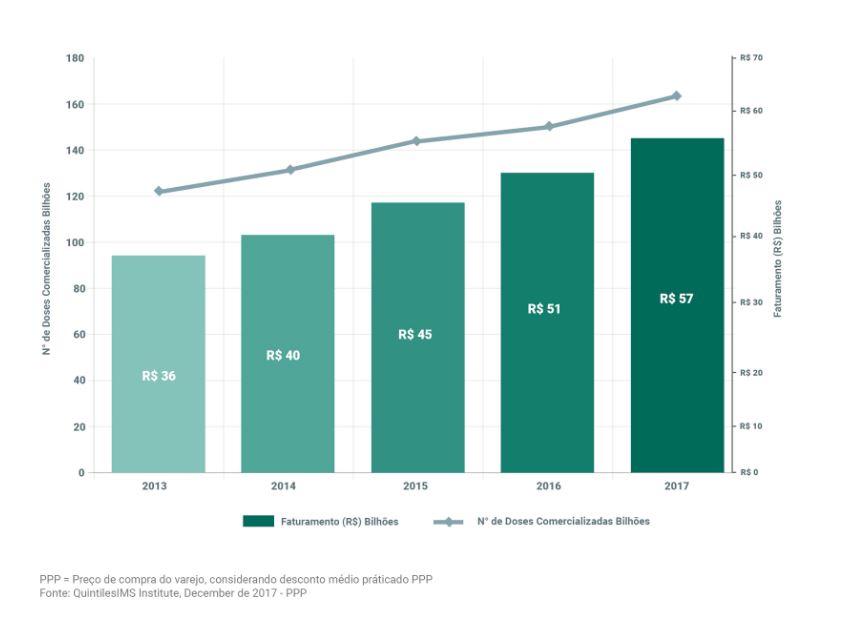
Pharmaceutical Market in Brazil
– The sale of medicines in pharmacies has reached
US$ 15 billion in Brazil
– 162 billion doses marketed
– Pharmaceutical retail represents 69% of the market
Source: Interfarma.org.br
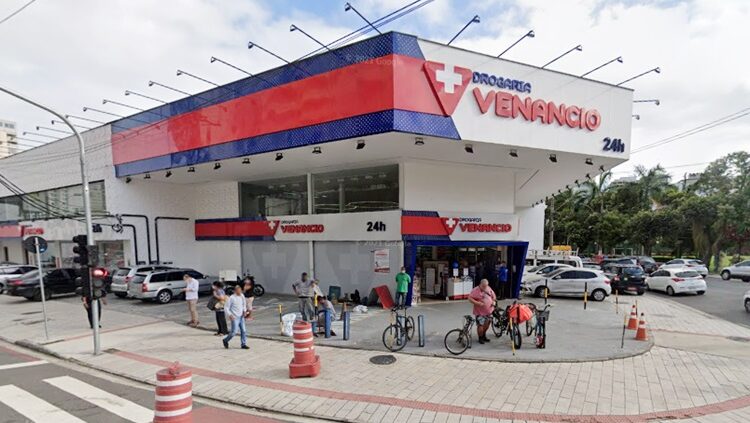
The Drogarias Venâncio chain has concentrated its business exclusively in Rio de Janeiro for 39 years.
Main products: beauty, health and well-being.
The business serves not only final consumers, but also hospitals, public and private medical clinics.
Seeking to reach a wider audience of consumers, the drugstore takes the first step towards the e-business and delivery system, until recently offered exclusively through telesales.
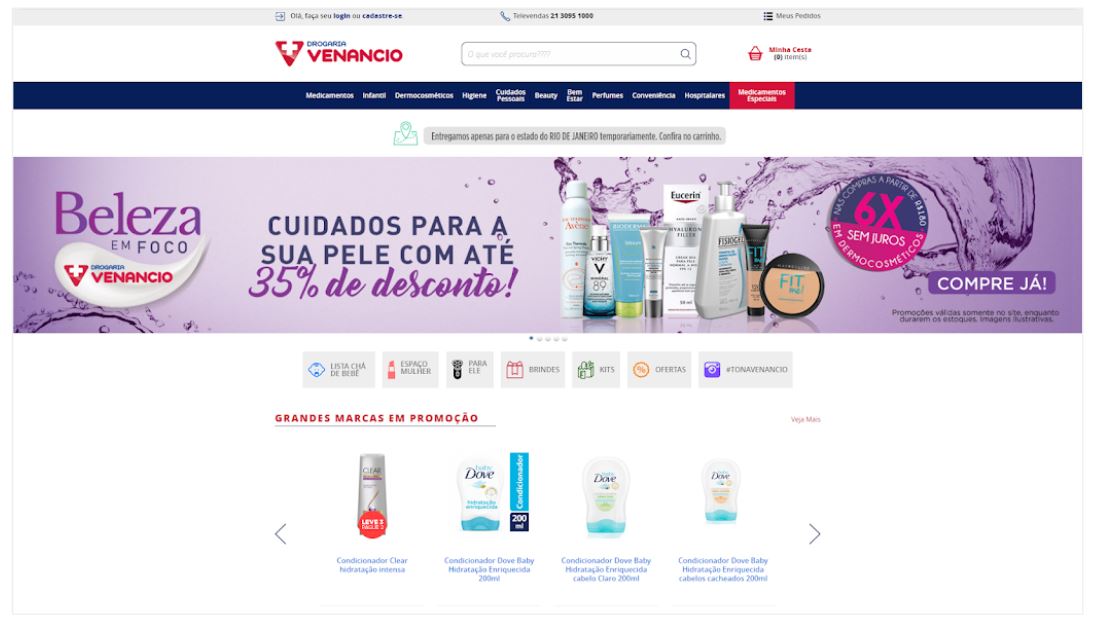
Former interface
Design Methodologies
In Depth Interview
Understanding of business needs and development of the briefing.
Analitycs
Overview of the state of e-commerce in quantitative and systematic data.
Card Sorting
Redesign of menu items according to users' mental model.
Heuristics Evaluation
Iterative identification of critical points in the e-commerce interface in order to urgently correct them.
Prototyping
Online store redesign focusing on user needs.
Usability Test
Application of the technique with users before launching the new store redesign.
Projetc duration
14
Weeks
96
Screens
Tools used
Google Analitycs Analisys
Venancio’s e-commerce user profile overview
Gender and Age
27.9% male
72.1% female
28.5% 25-34 y/o
27.2% 35-44 y/o
Ecommerce Spendings
Average Ticket BRL$ 47 Convertion Tax 1.61%
Best Sales
1 - Medicines
2 - Beauty products
3 - Well-being
Devices
57% Mobile
41% Desktop
2% Tablet
Card Sorting
Before
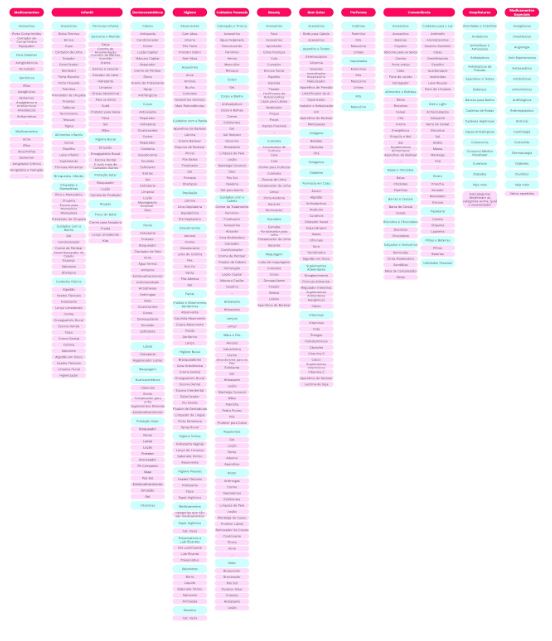
After
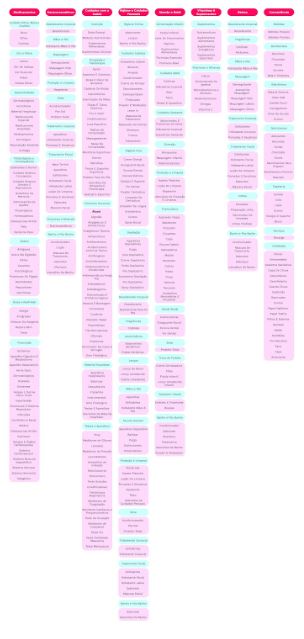
Heuristics Evaluation
Usability problems according to the 10 Heuristics.
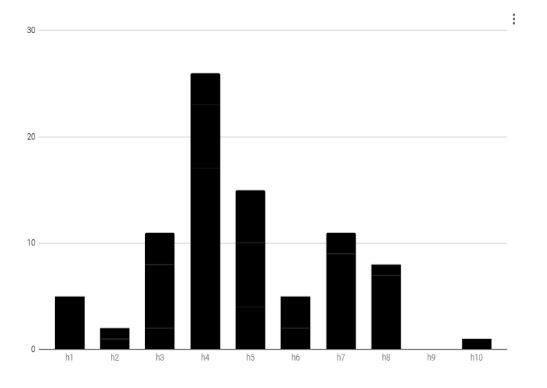
Relationship between Heuristics and their severity in the system.
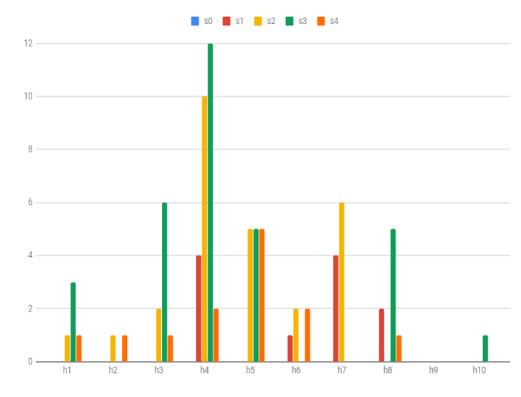
High Fidelity Prototype
Home page

Category page
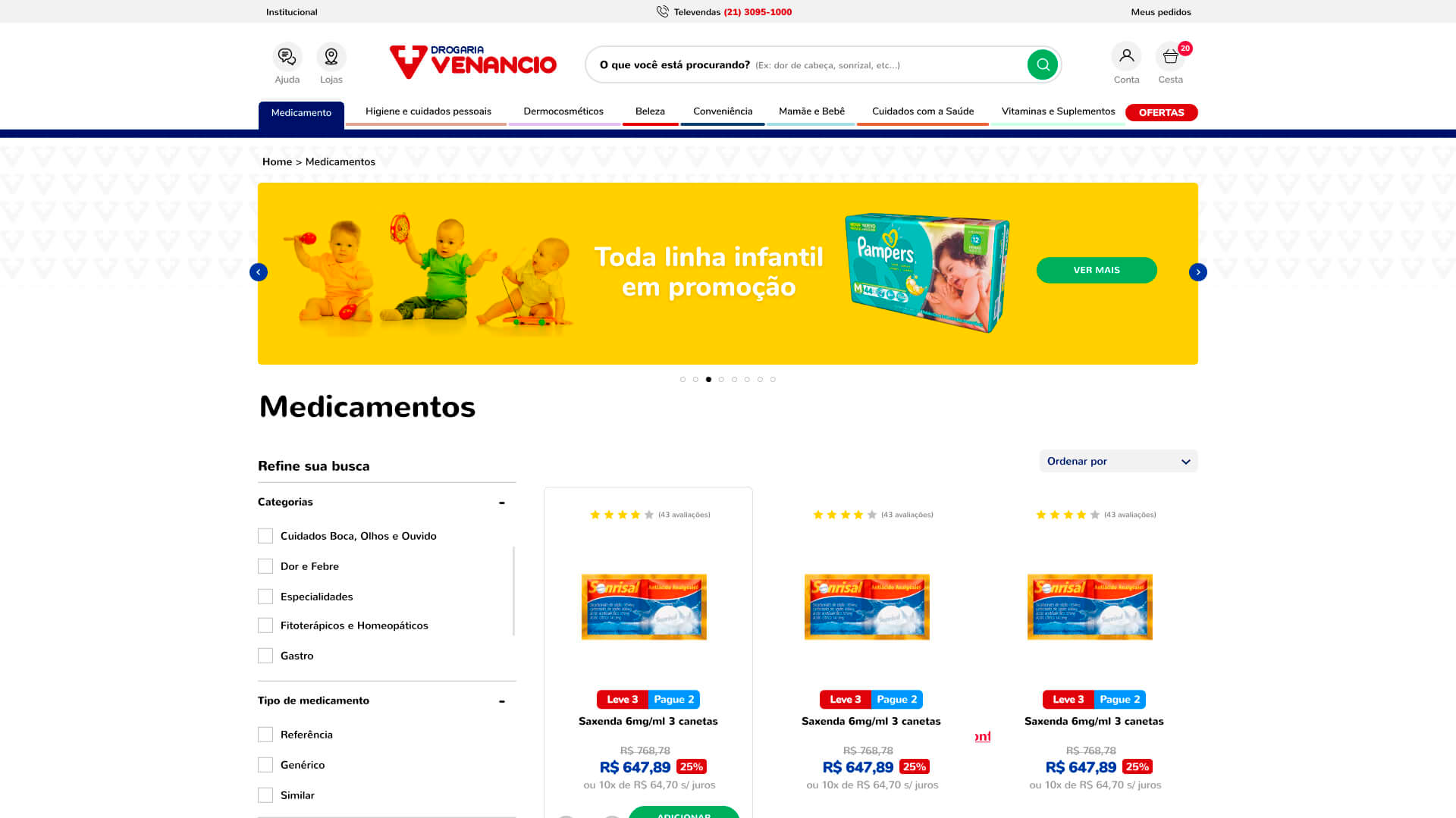
Product page
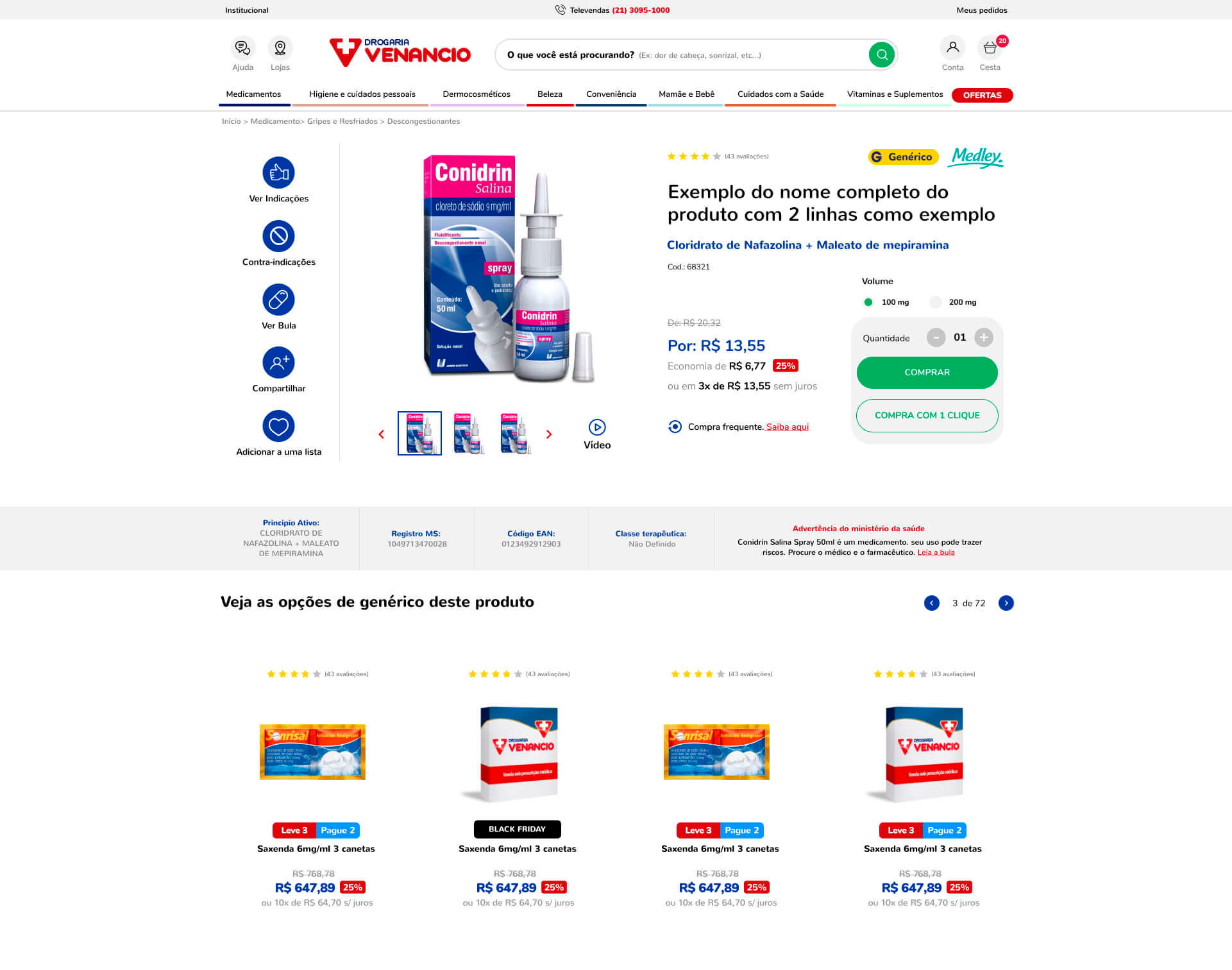
Usability Test
According to Villanueva (2009), the ThinkAloud Protocol method consists of a researcher observing users performing specific tasks within a controlled environment.
Users’ actions and thoughts must be verbally described aloud in real time. The researcher records user actions through written notifications, video or voice recording.
Upon noticing some reluctance of users to verbalize actions and thoughts during the technique, the researcher raises questions related to users’ actions to maintain the flow of verbalization of their thoughts.
Sample = 3 users
Task: “buy a painkiller and pay by bank slip”

Results
Card Sorting helped understand users' product organization's point of view and clarified the midpoint between users' thinking and stakeholder strategies. Information architecture was a turning point in laying the foundation for the development of high-quality prototypes.
Heuristics 4 and 3, the lack of user control and freedom is generally considered frustrating, by users, rethinking the approach to the observed errors was considered urgent.
New recommendations emerged in the last testing phase (Think-aloud Protocol) for the refinement of the system: (1) review the breadth of the search tool's vocabulary and optimize the informational structure.
Make it easy for users to recognize the mini cart function, where customers can preview all selected items prior to purchase,
Limit to one call-to-action option on the product description page to minimize questions about purchase actions for users.
The shipping cost must be clear during the user journey.
The checkout follows a standard system flow and cannot be redesigned. The best guideline is to design it more closely related to the brand's visual guides.
Results
Bounce rate decrease 31%
Page per section increase 11%
Conversion rate increase 11%
Have you seen these?
Dexco
Discovery / Usability Test
Electrolux
Benchmarking / Heat Map Analisys / Usability Test
Fornada App
App Design Process